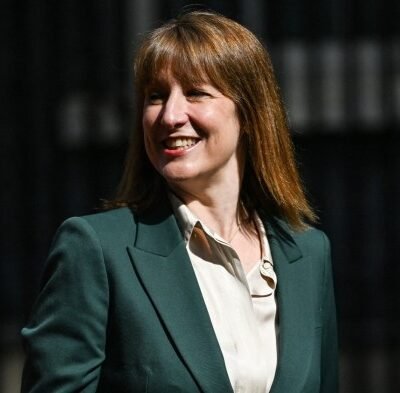FIRST-TIME buyers can now purchase a home with just a £5,000 deposit – but the savings can’t have come from your parents.
The new “First Step” mortgage by Newcastle Building Society means home buyers only need to put down 2% of the house price.
However, the lender won’t allow help from the Bank of Mum and Dad for this loan meaning the cash for the deposit can’t have been a gift.
It comes as family members have become a leading source of funding for first-time buyers as house prices have soared.
Last year, 173,500 first-time buyers — 52% of the total — had help from family, worth a total of £9.6billion, according to Savills.
Newcastle Building Society says the terms of its deal are designed to to make sure that those who don’t have financial help from parents still have a chance of getting on the property ladder.
However, it still accepts gifted deposits for a wide range of other mortgages including 5% deposit options.
Those eligible for the “First Step” mortgage can take out a maximum loan of £350,000 to help secure their home.
They’ll fix their repayments at 5.25% interest for five years, and no guarantor is needed.
The offer is significantly lower than the 10% or 20% deposit many lenders ask buyers to pay when securing a home.
For example, someone required to pay a 20% deposit on a property worth £350,000 would have to make a down payment of £70,000.
Under this scheme, they could make a payment of around £7,000.
Ben Smith, head of commercial and product development at Newcastle Building Society, said: “We’re committed to helping First Time Buyers whatever their background, and our mortgages support a range of people and their circumstances, including those with gifted deposits.
“First Step has been designed for homebuyers in particular who’ve worked hard to save a deposit by themselves, and are ready to get on the property ladder.”
Small deposit mortgage deals were previously popular leading up to the 2008 financial crash but were phased out afterwards.
These products have been hailed as an accessible way for buyers to get on the ladder.
But the larger loan-to-value ratio for the mortgage means buyers will pay higher interest rates when they make repayments.
It’s also important to be aware of negative equity in case house prices fall, meaning you owe more than what your home is worth.
This could make it very difficult, and even impossible to sell.
Rachel Springall, finance expert at Moneyfactscompare.co.uk said the offer is one of the very few mortgages that allow buyers to borrow at a high end of the loan-to-value spectrum, without needing a guarantor.
She added: “Not everyone can be reliant on the ‘Bank of Mum and Dad’ to get a foot onto the property ladder.
“This is why it’s so fundamental for lenders to support buyers with small deposits, to keep the market moving.”
Meanwhile, Nicholas Mendes, property expert at John Charcol, warned that buyers should “weigh up the pros and cons”.
“While the 5-year fixed rate at 5.25% is competitive for a high-LTV product, a 98% mortgage means starting with very little equity.
“This can leave buyers more vulnerable if property values dip in the short term.”
“However, buying a home is typically a long-term commitment, and the UK housing market has historically shown resilience over time.
“Affordability checks remain in place, so it’s vital that buyers go into this with a clear view of their long-term financial commitment.”
Do other lenders offer similar schemes?
Many lenders are offering their own take on the low deposit mortgages.
Earlier this year, Nationwide just launched a 95% mortgage for buyers looking to purchase a new build home.
The offer also allows customers to borrow six times their annual income through its Helping Hand scheme.
Elsewhere, Skipton Building Society offers a 100% mortgage deal that allows you to buy a home without a deposit.
A similar mortgage deal was recently launched by April Mortgages too.
Elsewhere, Accord Mortgages has said it will accept Universal Credit as a source of income when assessing affordability for a home.
This is provided that at least one other applicant is working and receives an earned wage.
Up to 60% of the Universal Credit amount will be considered, but this excludes housing allowance, service charges or the child element for kids aged over 11.
What help is out there for first-time buyers?
GETTING on the property ladder can feel like a daunting task but there are schemes out there to help first-time buyers have their own home.
Help to Buy Isa – It’s a tax-free savings account where for every £200 you save, the Government will add an extra £50. But there’s a maximum limit of £3,000 which is paid to your solicitor when you move. These accounts have now closed to new applicants but those who already hold one have until November 2029 to use it.
Help to Buy equity loan – The Government will lend you up to 20% of the home’s value – or 40% in London – after you’ve put down a 5% deposit. The loan is on top of a normal mortgage but it can only be used to buy a new build property.
Lifetime Isa – This is another Government scheme that gives anyone aged 18 to 39 the chance to save tax-free and get a bonus of up to £32,000 towards their first home. You can save up to £4,000 a year and the Government will add 25% on top.
Shared ownership – Co-owning with a housing association means you can buy a part of the property and pay rent on the remaining amount. You can buy anything from 25% to 75% of the property but you’re restricted to specific ones.
Mortgage guarantee scheme – The scheme opens to new 95% mortgages from April 19 2021. Applicants can buy their first home with a 5% deposit, it’s eligible for homes up to £600,000.






